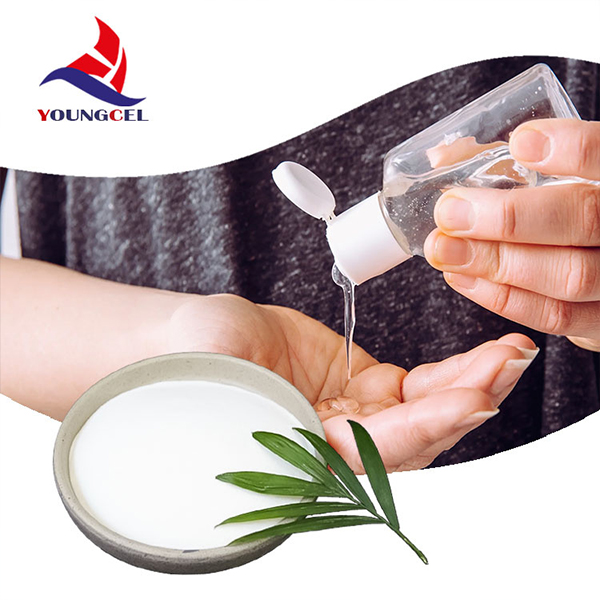HPMC for Tile Applications An In-Depth Overview
Hydroxypropyl methylcellulose (HPMC) is a cellulose-based polymer that has gained significant traction in various industries, particularly in the field of construction. Among its many applications, HPMC plays a crucial role in tile adhesives and grouts, offering a host of advantages that enhance the performance and durability of tile installations. This article delves into the benefits, functionalities, and significance of HPMC in tile applications.
The Importance of HPMC in Tile Adhesives
Tile installation presents unique challenges, including the need for strong adhesion, flexibility, and resistance to water and temperature fluctuations. HPMC’s unique properties make it an ideal additive for tile adhesives. One of the primary benefits of HPMC is its ability to improve the adhesion performance of the tile adhesive. When HPMC is blended into the adhesive mix, it enhances the bonding strength between the tile and the substrate, ensuring that tiles remain securely in place over time.
Additionally, HPMC increases the workability of the adhesive. The polymer provides better flow properties, allowing for smoother application and easier maneuverability of the adhesive during the tile installation process. This feature is particularly beneficial for contractors, as it saves time and reduces labor costs.
Water Retention and Open Time
Another significant characteristic of HPMC is its water retention capability. Tile adhesives need to retain moisture for a certain period to allow proper curing and bonding. HPMC contributes to this by slowing down the evaporation of water from the adhesive layer. This quality is vital, especially in hot or dry conditions where excessive evaporation can lead to poor adhesion and potential tile failure.
Moreover, HPMC extends the open time of tile adhesives. Open time refers to the period during which the adhesive remains workable after application. With longer open time, installers can adjust tile placement without the risk of the adhesive drying out prematurely. This flexibility is essential for achieving a flawless finish and ensuring that tiles are correctly aligned.
hpmc for tile

Enhanced Performance in Different Environments
HPMC's properties also make it suitable for various environmental conditions. Tile installations frequently occur in areas exposed to moisture, such as bathrooms and kitchens. HPMC not only improves the moisture resistance of the adhesive but also enhances its performance in wet conditions. The polymer helps to prevent degradation from water, ensuring that the adhesive maintains its effectiveness over time.
Furthermore, in regions with extreme temperature variations, HPMC’s flexibility helps mitigate the stresses caused by thermal expansion and contraction. This feature is crucial for preventing tile cracking and ensuring the longevity of the tile installation.
Sustainability Considerations
In today’s environmentally conscious market, the use of sustainable materials is becoming increasingly important. HPMC is derived from natural cellulose sources, making it a more eco-friendly option compared to synthetic polymers. Its biodegradability aligns with the growing trend toward sustainability in construction practices, appealing to both contractors and consumers who prioritize green building materials.
Conclusion
In summary, HPMC is an invaluable additive in the tile adhesive and grout industry. Its ability to enhance adhesion, improve workability, maintain moisture, extend open time, and adapt to various environmental conditions makes it a vital component for successful tile installations. As the demand for high-performance building materials continues to rise, HPMC's role in the construction industry is poised for even greater importance, aligning with both performance needs and sustainable practices. For contractors and DIY enthusiasts alike, understanding the benefits of HPMC can lead to more successful, durable, and aesthetically pleasing tile applications.
-
Rdp Powder: Key Considerations for Wholesalers in the Building Materials IndustryNewsJul.08,2025
-
Key Considerations for Wholesalers: Navigating the World of Hpmc - Based ProductsNewsJul.08,2025
-
Hpmc Detergent: Key Considerations for WholesalersNewsJul.08,2025
-
Key Considerations for Wholesalers: China Hpmc For Tile Adhesive, Coating Additives, Concrete Additives, and MoreNewsJul.08,2025
-
Crucial Considerations for Wholesalers: Navigating the World of Construction MaterialsNewsJul.08,2025
-
Key Considerations for Wholesalers Sourcing Additive For Cement, Additive For Concrete, Additive For Putty from Additive Manufacturer Shijiazhuang Gaocheng District Yongfeng Cellulose Co., Ltd.NewsJul.08,2025




